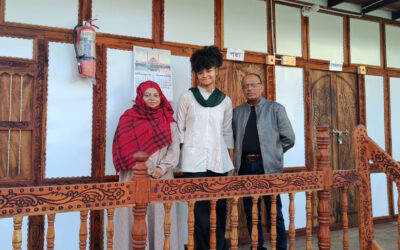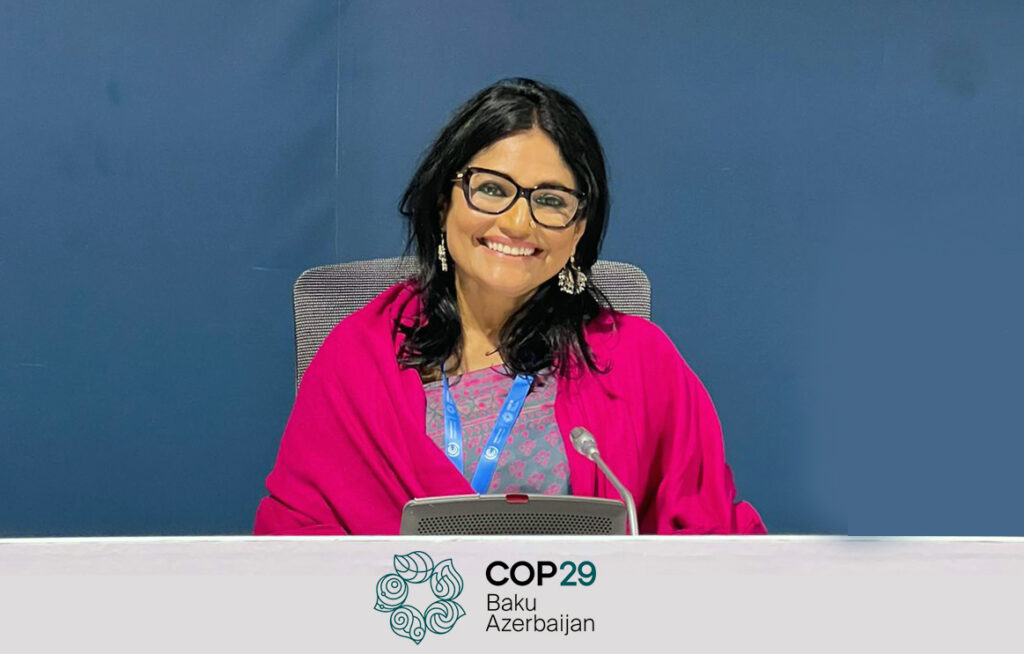
by Runa Khan
November 22, 2024
As COP29 concludes in Baku, Azerbaijan, we gather to confront a climate crisis that is no longer on the horizon—it is reshaping lives and futures, today.
Yet words often overpower real actions! Whilst pledges are sought in Decision Making rooms; We must ask: are we truly listening to those who will live out the consequences of these decisions?
As the world’s youth take to the stage at COP29, many more than before, we wonder, are we amplifying youth voices with genuine intent, or are we succumbing to ‘youthwashing,’ where young people are included merely for appearances without meaningful opportunities to lead and impact decisions? Too often their presence is symbolic, fleeting, and mostly powerless.
We can no longer afford this superficial inclusion. The youth voice is vital not just for its urgency but for the truth it speaks to power. They are the inheritors of this legacy, and so they must be present with the strength, skills, and freedom to act and lead. We need empowered youth—not just to be seen, but to meaningfully shape outcomes.
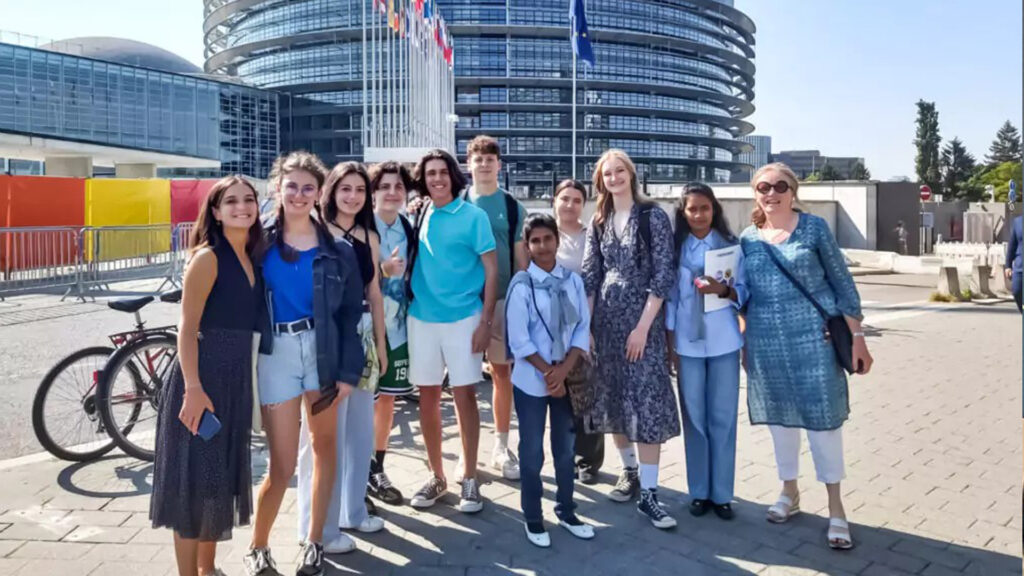
Tokenism at events like COP29 risks reducing youth engagement to mere visibility. This approach not only disrespects their talents, intelligence, and strength but also fails to harness their full potential. Organizations must critically reflect on their motives and commitment to empowering youth.
Today, there are 1.8 billion young people globally—our largest generation—and they stand on the precipice of an uncertain future. We know that in 2019 alone, 24 million people were displaced by climate-induced disasters, with an estimated 140 million projected by 2050. We cannot treat or use young people as props in a global spectacle, instead of vital allies in this existential fight.
We speak of global targets and yet ignore the transformative power of youth when engaged deeply. Youth-led change is not new; it is essential, and it is immediate. Look at the strength of today’s youths in the Bangladesh Revolution!! Look at them and see!
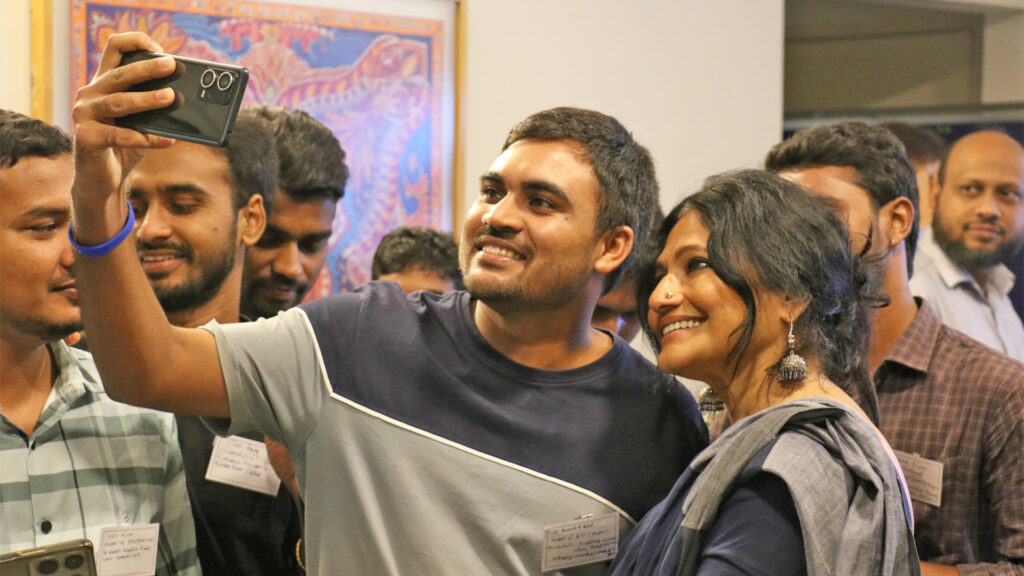
Real youth representation must rise above mere gestures. It means giving young leaders the ability to engage on the critical topics of our time, giving them needed tools—climate finance, adaptation strategies, and the policies that determine the survival of nations.
Often, the youth are made to stand without adequate preparation. To stand in these dialogues without preparation is to set them up to fail, lose decision-makers trust, and squander their true courage.
Youth Leadership from the margins happen and is a reality we see daily: Friendship impacts girls and boys from the remote chars of Bangladesh, to defy incredible odds, and raise their voices on international platforms. Two girls represented Bangladesh at the European Youth Parliament, sharing stories of resilience and innovation from their communities. At COP28, Friendship-supported youth delegates demonstrated the courage and competence to advocate for climate justice, standing shoulder-to-shoulder with global leaders and media. Friendship’s Interconnectivity School Project is another groundbreaking initiative that links students from isolated chars to the globe. These students engage with peers worldwide through digital technology, fostering knowledge exchange and global awareness.
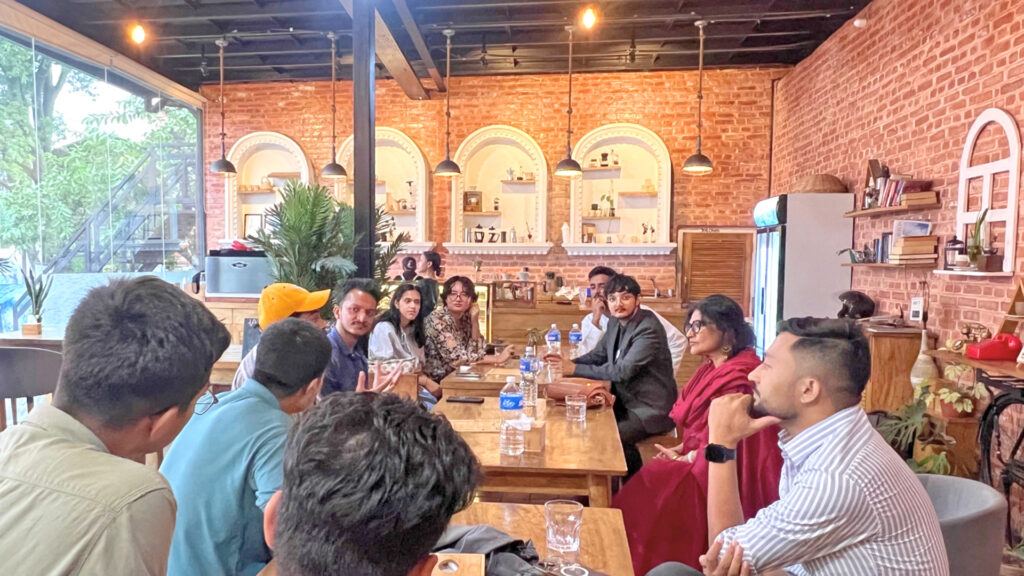
Additionally, our flood volunteer programme empowers young volunteers to represent grassroots disaster response efforts at the 16th International Community-Based Adaptation (CBA16) conference. An individual’s story represented, exemplifies how locally trained youth leaders can drive change and advocate for solutions at a global level. These efforts showcase what is possible when youth are empowered with training, mentorship, and platforms to shine.
Empowering Youth Across Diverse Fields and Technologies must be beyond events and programmes. True empowerment lies in equipping youth with technological skills and multidisciplinary expertise. Young leaders must be trained not only in climate negotiations but also in practical solutions like green technologies, solar energy, and disaster response.
Teaching youth to install and maintain solar panels not only creates local resilience but also fosters sustainable economic opportunities. Similarly, skills in climate disaster response, such as flood management and adaptation techniques, empower young people to lead in their communities. These skill sets must be diverse—spanning policy, finance, engineering, and ecosystem restoration—because the climate crisis demands comprehensive, integrated responses. Empowered youth are those who can drive both local solutions and global policy, bridging the gaps between innovation and implementation.
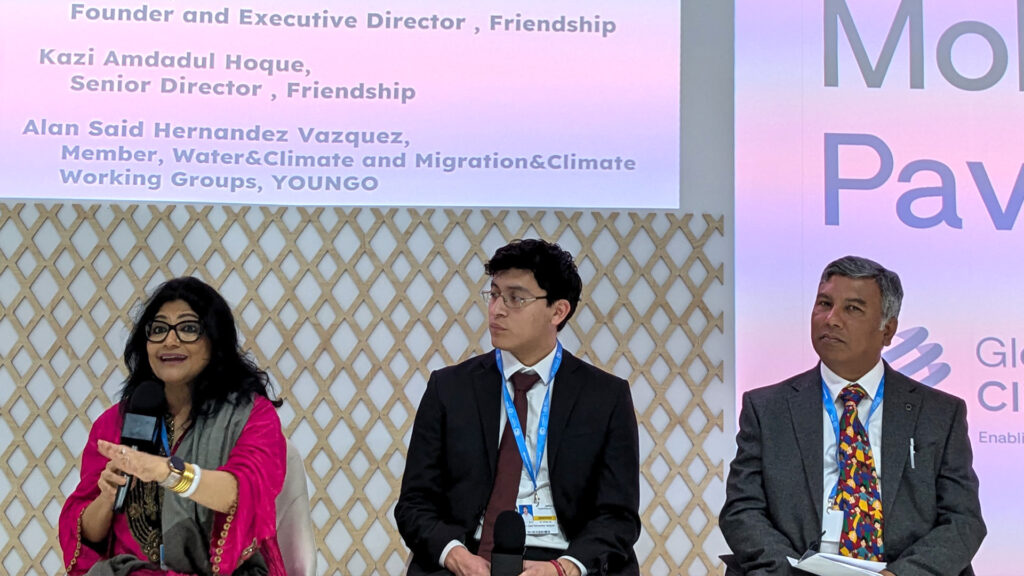
There is no power in mere tokenism. Representation without power is worse than absence; it is a hollow gesture, and at this point in the climate crisis, hollow gestures are dangerous. At COP29, we witnessed encouraging strides towards inclusive youth engagement, but this must be deepened. Instead, we must demand capable, prepared youth advocates. While the increased presence of youth is promising, it must be accompanied by comprehensive preparation and meaningful engagement in addressing real-world challenges. Incorporating youth voices meaningfully requires mechanisms for accountability and mutual learning. Decision-makers must evaluate the impact of youth contributions and provide actionable feedback. This ensures that their voices not only resonate but lead to measurable outcomes. Youth engagement must come with the skills to negotiate climate finance, ecosystem-based adaptation, and emissions reduction.
This is my hope for our coming conferences and our world of tomorrow.
Note: A version of this article was published in the Daily Star newspaper on November 25, 2024 (subscription required).


